Egypt’s Revolution: Director Jehane Noujaim Talks About Capturing the Tahrir Square Uprising
The Egyptian filmmaker says what happened in Tahrir forever changed the consciousness of the country.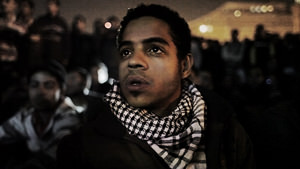
Hosni Mubarak was overthrown in 2011 after ruling Egypt for more than 30 years, and then, in 2013, a second president, Mohammed Morsi, was deposed. In her documentary “The Square,” Jehane Noujaim, who grew up in Cairo a few minutes from Tahrir Square, follows a group of Egyptian activists fighting for change. Noujaim, the daughter of an Egyptian father and an American mother, is best known for “Control Room” (2004), which upset the Bush administration’s narrative about Al-Jazeera and the war in Iraq, and “Rafea: Solar Mama” (2012), a documentary about a Jordanian woman who comes to India to train as a solar engineer. With her latest documentary, Noujaim concentrates on three main characters: Magdy Ashour, a member of the Muslim Brotherhood and father of four undergoing a crisis of faith; Ahmed Hassan, a young protester from a working-class family who believes that Mubarak being ousted is a dream come true; and Khalid Abdalla, a British-Egyptian actor who appeared in “The Kite Runner” and “United 93,” and who left London to join the revolution.
In San Francisco recently, Noujaim talked about finding her characters and crew in the square, how Tahrir changed the consciousness of the country, and her decision to go back to Cairo for more filming after the movie won the Audience Award for World Cinema Documentary at the 2013 Sundance Film Festival.
Emily Wilson: The movie starts with a power outage. Why did you choose to start that way?
Jehane Noujaim: We wanted to start with a natural moment with Ahmed, and that was a moment at his house with his brother. It just shows his relaxed sense of humor. He says the lights are out all over the world, and he lights a candle. In a way, that spark was a little bit what happened at the beginning of the revolution. It was a spark of an idea, and it caught on. Ultimately it’s changed the consciousness of a country and an entire region.
EW: How did you find the characters you followed?
JN: We had the film gods on our side. We found them before Mubarak stepped down. Ahmed I met because a friend of mine was making a news piece about him, and I fell in love with him. His spirit and his purity just emanate from him, and people feel that. He cares so deeply, and he’s so principled. You look for characters you want to spend time with because if you don’t feel intrigued by them, you’re never going to intrigue an audience. They have to — Ahmed’s an incredible joyful, charismatic person, and if you follow him in the square for more than 10 minutes, he’ll start speaking and then he’ll be surrounded by people. People are drawn to him, so you knew he was going to be in the center of the action.
Khalid I met probably the fourth day of shooting. He was sleeping in a tent with his fiancee at the time, Cressida Trew. I had met her — she’s an aspiring filmmaker, and she wanted to stay in Egypt, but she wanted to be part of something. She had seen my previous film, “Egypt: We Are Watching You,” about three women who were fighting for political change. She said, “You should meet my fiance,” so I met him and he was so articulate at some very confusing times. So Cressida became one of the filmmakers and she followed Khalid around and that’s the reason we have such intimate footage of him.
Magdy I met because his tent was near ours. I met him through Pierre who had the apartment near the square who I’ve known for about 10 years. So you had a Muslim Brotherhood guy talking with a Coptic Christian, both scheming and dreaming about the future that was being created for Egypt. It was amazing this guy had such an open mind and a desire to interact with people so different from him.
EW: Where were you when you started working on this?
JN: On January 25, I had a very big decision to make — did I want to be in the square with the women I’d followed in 2007 who would be marching, or should I go to Davos where a lot of the leadership of Egypt was going to be? I thought it would be interesting if the country exploded and I was with them, it was a perspective not many people would be getting. So I went to Davos, but of course, none of the leadership showed up. Then I had to get back as quickly as I could.
All my equipment was all taken except for the Canon DSLR, so I took that in. I was arrested 20 minutes after leaving the airport because our car was searched by military intelligence and they saw my previous film “Egypt: We Are Watching You”; they found seven copies in the bag. Not a great title to find when the country is exploding. I was taken in for about eight hours of questioning. When they kept asking me about my filmmaking, I realized they had seen copies of the film. I didn’t know who was interrogating me because they were in plainclothes. I excused myself to go to the bathroom, and I made it to the car and got the DVDs from the car, and tried to break them up and shove them down a drain. I walked back and I guess the guy who was cleaning the bathroom came in holding a shard of the DVD, so all the interrogators looked at me. I said, “Look, I don’t know who you are, I don’t know where I am, I don’t know how long this will go on for, but you have me completely scared. I was not about to be straightforward with you, but now I have to be. I have made a political film about three women in Egypt who I consider heroines, and I think it’s a nationalistic movie.”
It was like something in me broke when I decided to be honest about how I felt regardless of the consequences. There’s a freedom you gain. I think that was a tiny piece of what so many people felt when they went down to the square and said, “No more, and I will not let fear dictate my actions anymore.”
After they let me go, I went directly to the square and found men, women, all different classes, all kind of planning the future of the country. There was this incredible energy. It was magical to be there. When I experience something like that, I want to share it with the world. In the next two weeks I had met all the characters and the crew. They all came organically from the square.
EW: Was it pretty dangerous for you to be there making this movie?
JN: It was a huge security blanket to have Pierre’s place right there. We got an office about five minutes away that I could get to easily. There was also a lot of dead, boring moments in the square — not what you see in a 90-minute movie. If you had told me five years ago I would be running through tear gas and bullets and away from police and army, I would have said, “No way.” But there’s something that happens when you see people willing to put everything on the line. It gave me a reserve of power and strength. You somehow feel like there’s nothing more important than what you’re doing at that time, and you can’t let fear stand in the way.
EW: What are people finding out through your movie they didn’t know about Egypt before?
JN: Some of the most exciting screenings have been in high schools and colleges. I had a couple of young women come up to me after the last screening, and say, “I haven’t followed what’s going on in Egypt really, but I got so excited about this film. I felt so alive watching it because the characters feel so alive and connected to what they want and they’re fighting for something bigger than themselves. It made me question what I’m fighting for. I’ve been calling myself an environmentalist but what am I willing to do for what I believe in?” So for people we’ve shown it to here, the story is about the process of change and the struggle it takes, and how you have to continue fighting for your rights because rights are never given to you — you’re always taking them. I think on a universal level, the story is about how change happens on the ground. On the news, you see the Million Man March or the bloodiest battle, but you don’t see how you get there, and you don’t see how lonely the fight can be sometimes. You never see Gandhi and Martin Luther King when they’re all alone and scared and they feel like they failed and they have no support. That is the most important point. In the square I really saw with my own eyes that quote by Margaret Mead: “Never doubt that a small group of thoughtful, committed citizens can change the world; indeed, it’s the only thing that ever has.”The film gets to a point where Ahmed talks about consciousness and tangibly that means the constitution — it’s this founding period we’re going through. And people say a lot, “Well, the military is back and it’s such a dark time in Egypt,” and it is. People say, “Has everything failed?” And I always think about the civil rights movement, and we’re still fighting for some of those laws to be put in place, and people don’t call the Civil Rights movement a failure because what happened was there was a change in consciousness.
People will never be accepting of the same kinds of things that they were before. What’s happened in Egypt is a change of consciousness. People will no longer say as they used to, “Well that’s what happens, torture happens in prison. Yeah, people are randomly arrested. It happens.” Now people will say, “This is so completely wrong, and it shouldn’t happen.”
EW: Some of the scenes are pretty graphic. You have footage of the protest singer, Ramy Essam, after being tortured, for example. Was it ever a question how much to leave in or how much to show?
JN: Well, we followed our characters. So when Ramy was tortured, we showed that because we followed him. And that’s when I knew we had a film we had to make because here’s a guy who was heralded as the hero of the revolution, and three weeks after Mubarak stepped down, he’s arrested, taken to the Egyptian Museum, brutally tortured, and there’s not a word of it anywhere. It was like the international cameras had gone on to cover other things and the local cameras were controlled by the army.
I posted the pictures of him on Facebook, and I had educated friends say, “There’s no way the army would do that — this is makeup.” So, I thought we have to make this movie because there’s this huge force that thinks they can act with impunity, and that’s where the value of storytelling and exposing another narrative comes in.
Here in the States, you have your heroes, like Rosa Parks who refused to sit in the back of the bus, and this is very important for kids to look to and realize that they as individuals can make change. In Egypt, we don’t have individual stories of people who made change. Something important to me was how do you empower Egyptians to make films about local heroes and getting those stories out there? Coming from a culture whose stories have often been told by the West, I think it’s crucially important that this story about the Egyptian revolution is told by Egyptians.
EW: After you won an audience award at Sundance, you went back to Cairo to film more. Why did you make that decision?
JN: The first film was really about bringing down a dictator to the election of a new president. But in December, two weeks before we left for Sundance, everybody was back in the square, so it wouldn’t have been truthful to end it there with the celebration of a president. It became a much more interesting, deeper story about holding government accountable and about the fight against fascism whether the face of that fascism is Mubarak or the military or the Muslim Brotherhood.
We had to go back because it was the story of our country. And what happened on June 30 was in the most populous country in the Arab world, a deeply religious country, you had millions of people, a third of the population, all different classes saying we demand the separation of church and state, and we will not have somebody using religion to create another dictatorship. What happened right after that was the army came down and removed Morsi with a gun to his head. It’s very interesting how this works because the Brotherhood has made huge cultural changes to the country without holding one political post over the last 50 years by distributing sugar and providing education, and the minute they took one political post, they lost such a huge amount of power in a year.
It just shows it was so important they were allowed to be part of the political process because their supporters just saw them as politicians; they didn’t get support as these martyrs.
Watch director Jehane Noujaim’s appearance on “The Daily Show” on Wednesday:
The Daily Show
Get More: Daily Show Full Episodes,The Daily Show on Facebook
Independent journalism is under threat and overshadowed by heavily funded mainstream media.
You can help level the playing field. Become a member.
Your tax-deductible contribution keeps us digging beneath the headlines to give you thought-provoking, investigative reporting and analysis that unearths what's really happening- without compromise.
Give today to support our courageous, independent journalists.

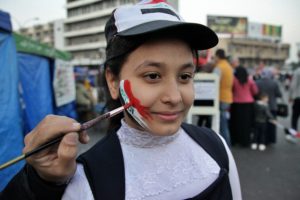
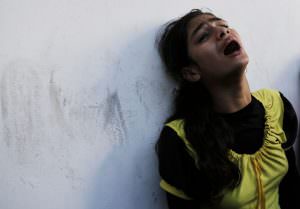
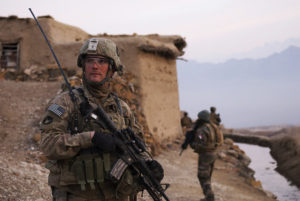
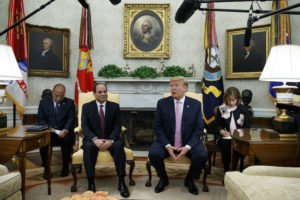
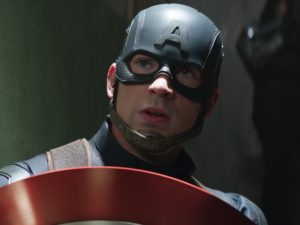
You need to be a supporter to comment.
There are currently no responses to this article.
Be the first to respond.